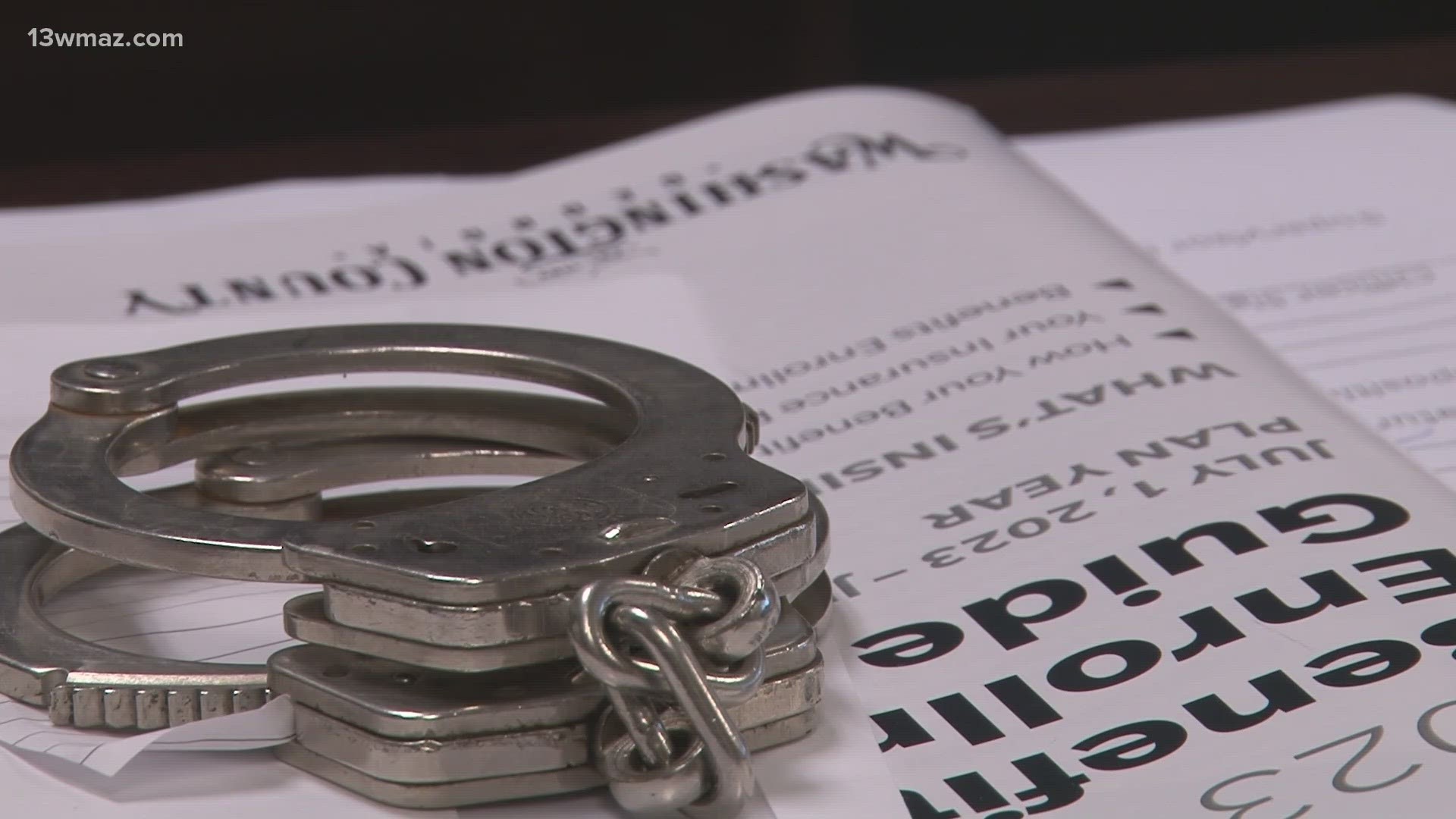WASHINGTON COUNTY, Ga. — Mental health resources are hard to come by, especially in Central Georgia's more rural areas.
The Washington County Sheriff's Office hopes to use almost $1.6 million from Governor Brian Kemp's law enforcement grant to change that.
Their plan is to create the first rural, multi-county mobile mental health task force.
From November 2021 to November 2022, the Washington County Sheriff's Office received over 26,000 calls. Out of those, over 350 dealt with a mental health crisis.
Sheriff Joel Cochran says during a mental health crisis, law enforcement is usually the first call.
“We have to go out and deal with people who are in these crises, and oftentimes, they become very difficult,” he explains.
Cochran says situations can easily escalate, like in 28-year old Brianna Grier’s case.
She died in neighboring Hancock County when she fell from a moving patrol car after her arrest during a mental health crisis.
Another case was with 58-year-old mentally-ill Eurie Martin, who was tased and killed by three Washington County deputies in 2017.
“We're not trained mental health professionals,” Cochran explains.
Oconee Behavioral Health Operations Director Shawanna Downing works with law enforcement agencies during a mental health crisis.
“We may have a crisis almost two to three times a week,” Downing says.
She says many of the folks they treat forget to or simply don't take their medication, and don’t comply with appointments, which sometimes gets them in trouble with the law.
“They don’t know what they’re doing when they’re on their medication,” she says.
Downing says when law enforcement does bring someone in or have a virtual telehealth checkup set up, they provide the initial checkup with doctors and counselors.
“If the provider feels like they need in-patient [treatment], that's when they would end up going to the hospital. Then once they're at the hospital, it's like they're stationed there because they're waiting on beds,” she explains.
Downing says some can wait in jail for more than a week waiting for a room.
“Jail is really not a place for a person who's in a mental health crisis,” Cochran says.
He says five other rural counties share the same volume of mental health crises and the lack of mental health resources -- Hancock, Glascock, Jefferson, Wilkinson, and Washington counties.
So, with almost $1.6 million, they'll create a task force for each county to respond to the scene with a behavioral-health worker, a deputy, a peer support individual who's dealt with mental crises firsthand, and establish the Washington County Sheriff’s Office as a Crisis Intervention Certified Agency.
“They'll have the resources they need to help de-escalate the situation. You know, try to get them some help rather than always having to incarcerate them,” he explains. “If we would’ve had something like this back then, we might’ve been able to prevent someone losing their life.”
Cochran says Thursday, June 15, they're meeting to start putting the teams together.

